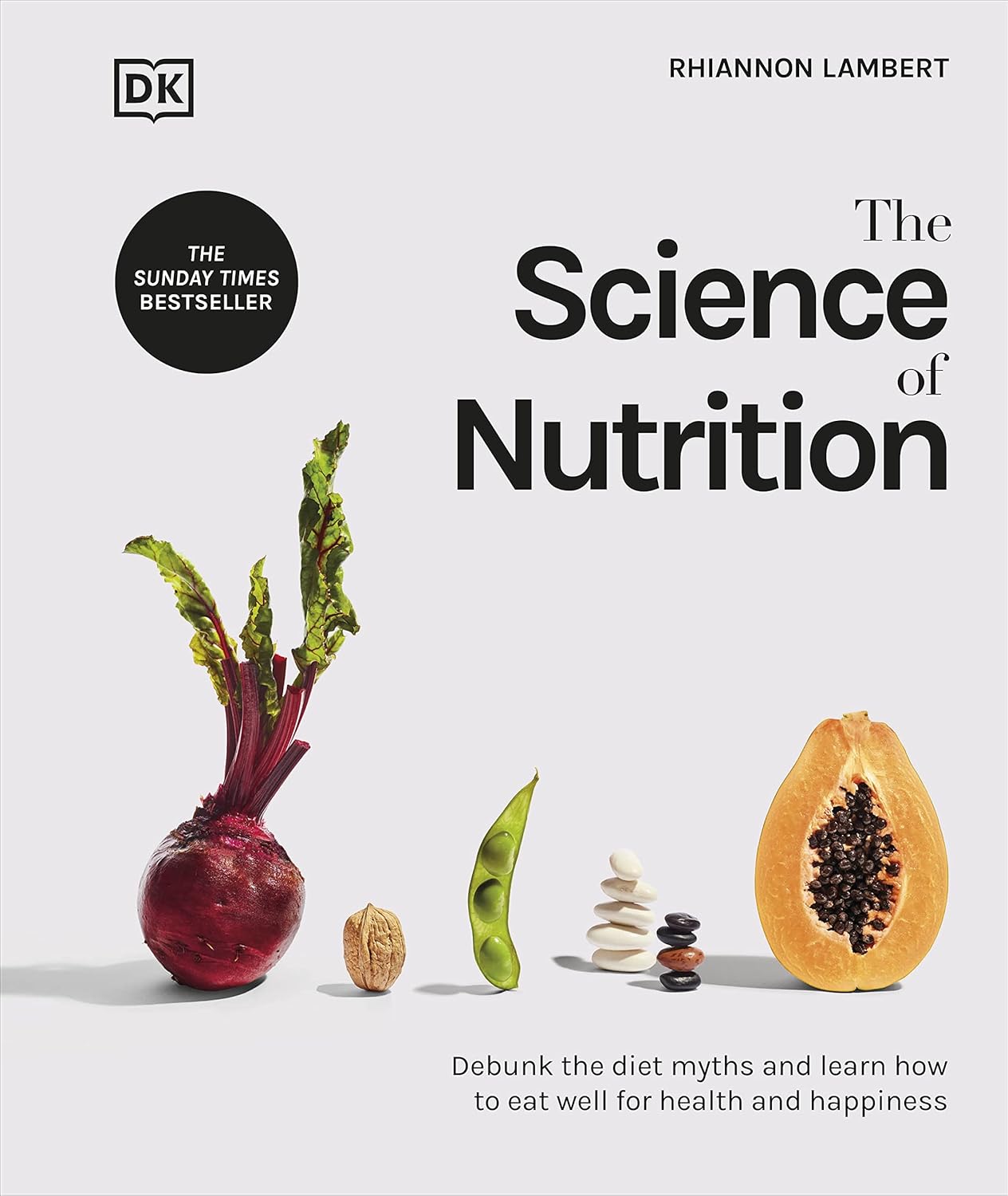
The Science of Nutrition: Debunk the Diet Myths and Learn How to Eat Well for Health and Happiness
FREE Shipping
The Science of Nutrition: Debunk the Diet Myths and Learn How to Eat Well for Health and Happiness
- Brand: Unbranded

Description
As the Chief Scientist at ZOE Ltd, she leads the PREDICT programme of research, assessing the genetic, metabolic, metagenomic, and meal-dependent effects on metabolic responses to food in over 100,000 people. This research is at the forefront of developments in personalised nutrition and is forging a new way forward in the design and implementation of large-scale remote nutrition research studies integrating novel technologies, citizen science and AI.
John Mathers is Professor of Human Nutrition in Newcastle University. He was an undergraduate in Newcastle University, then undertook postgraduate training in University of Cambridge. After a short time in University of Edinburgh, he returned to Newcastle University where he established the BSc in Food and Human Nutrition degree programme and the Human Nutrition Research Centre that he directed from 1994 until 2022. Henry Dimbleby is the author of Ravenous: How to get ourselves and our planet into shape. Published in March 2023, this analysis of the food system – how it is malfunctioning and what to do about it – builds on the work he did in the independent National Food Strategy, described by Prue Leith “the best government document that’s ever come out”. Metabolic syndrome – PubMed Health". Ncbi.nlm.nih.gov. National Center for Biotechnology Information. Archived from the original on 5 February 2011 . Retrieved 17 October 2011.The Royal Society has an acceptable use policy for all online events, and we expect our users to abide by these guidelines Her postdoctoral fellowship at the APC Microbiome Institute at University College Cork, Ireland, kindled her deep interest in gut-associated microbial communities. Subsequently, she took on her first independent role as a lecturer at the University of East Anglia, Norwich, where she and her new team honed their focus on the gut microbiota, particularly during early life.
Mozaffarian, Dariush; Rosenberg, Irwin; Uauy, Ricardo (13 June 2018). "History of modern nutrition science—implications for current research, dietary guidelines, and food policy". BMJ. 361: k2392. doi: 10.1136/bmj.k2392. ISSN 0959-8138. PMC 5998735. PMID 29899124. Archived from the original on 6 August 2022 . Retrieved 6 August 2022. Find sources: "Nutritional science"– news · newspapers · books · scholar · JSTOR ( March 2021) ( Learn how and when to remove this template message) Meat provides protein, which is of high biological value in human nutrition. It consists of about 20 percent protein, 20 percent fat, and 60 percent water. Meat is also a good source of niacin, vitamin B12, vitamin B6, and the mineral nutrients iron, zinc, phosphorus, potassium, and magnesium. Recognising that there is no one-size-fits-all when it comes to nutrition, this ground-breaking book has the answers to all your food-related questions, covering every conceivable topic - from gut bacteria to weight management, to heart health and immune support, to vegan diets and intermittent fasting, and everything in between.Prokaryotes, including bacteria and archaea, vary greatly in how they obtain nutrients across nutritional groups. Prokaryotes can only transport soluble compounds across their cell envelopes, but they can break down chemical components around them. Some lithotrophic prokaryotes are extremophiles that can survive in nutrient-deprived environments by breaking down inorganic matter. [51] Phototrophic prokaryotes, such as cyanobacteria and Chloroflexia, can engage in photosynthesis to obtain energy from sunlight. This is common among bacteria that form in mats atop geothermal springs. Phototrophic prokaryotes typically obtain carbon from assimilating carbon dioxide through the Calvin cycle. [52] Mozaffarian, D., et al. (Jun, 2018). ‘History of modern nutrition science – implications for current research, dietary guidelines, and food policy’. Retrieved from BMJ.
- Fruugo ID: 258392218-563234582
- EAN: 764486781913
-
Sold by: Fruugo
